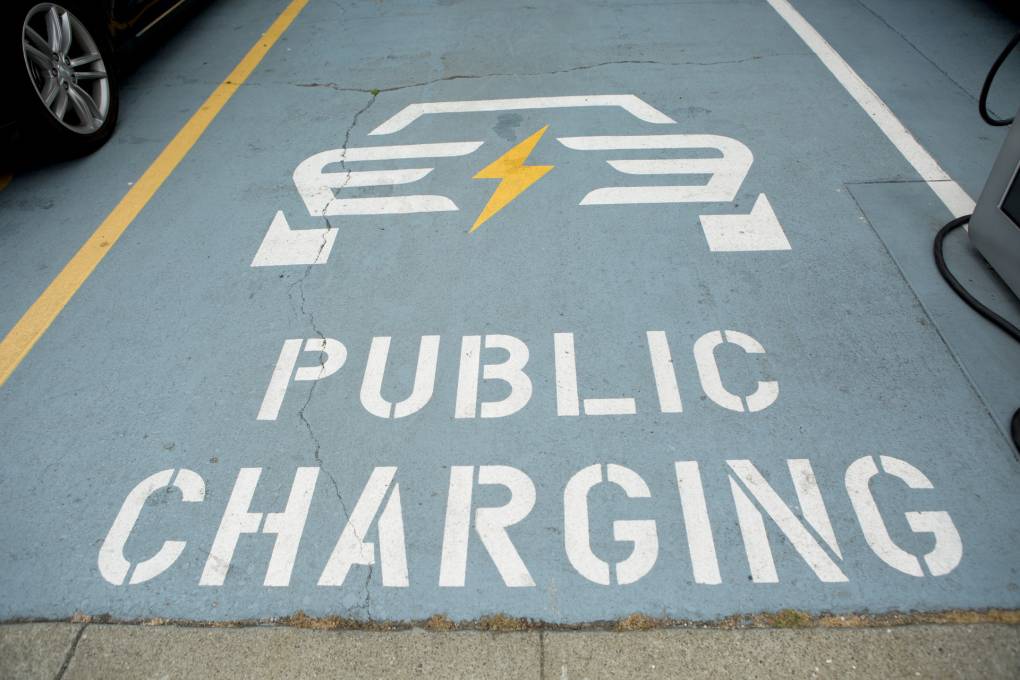So why is he opposing? He has said that the plan is unnecessary, pointing to the fact that the state invested billions of dollars this year on clean car rebates, electric vehicle chargers and other transportation projects.
In opposing Proposition 30, Newsom villainized Lyft, saying the ride-hailing company “devised” the measure to “funnel state income tax to benefit their company.”
Lyft certainly has skin in this game — and has dumped, at this writing, more than $45 million into the Yes on 30 campaign. Last year, California required that nearly all trips on ride-hailing platforms be in electric vehicles by the end of this decade.
Proposition 30 doesn’t mention the company’s name, nor would it funnel money directly to it. But it would make electric vehicles cheaper for its drivers (and all Californians) and pay to install public charging stations that these cars would use.
Did Lyft devise the measure to direct state tax money its way?
Newsom has claimed that Proposition 30 was “devised by a single corporation” (read: Lyft).
But the measure was actually designed by a coalition of environmental and other advocacy groups, including the Natural Resources Defense Council, SPUR and other groups. (Environmental attorneys told The Sacramento Bee that Lyft was involved in drafting the measure.)
There are receipts here. Back in 2020, Denny Zane, former mayor of Santa Monica and head of Move LA, a transit advocacy group based around Los Angeles, hosted a series of events about air pollution.
At one event, he asked state climate leaders, including Mary Nichols, Newsom’s former top air regulator, this question: If you had $30 billion to spend fighting climate change, what would you do? Many responded by saying they would invest in electric vehicles.
Zane has a long history of pushing Californians to raise taxes to pay for clean transportation. He persuaded Los Angeles voters to pass a sales tax hike to pay for public transit with Measure R in 2008 and again with Measure M in 2016.
“We went to the ballot and it worked,” Zane told KQED in an interview. “LA now has about $120 billion over the next 40 years coming to invest in transportation.”
He thought Newsom would be a partner on a statewide version.
“We finally had somebody who was going to help back the signature drive,” he said. “Suddenly, it’s like a scheme. That’s just wrong. It’s just a mistake.”
Lyft President John Zimmer has also pushed back on Newsom’s assertion.
“This is about the health of our neighbors and communities,” he said. “That’s why we agreed to get involved when environmental leaders approached us with their plan to reduce California emissions.”
How would it affect the state’s finances?
Newsom’s opposition has him siding with conservatives and anti-tax groups like the California Chamber of Commerce and the Howard Jarvis Taxpayers Association.
They point out that the state already has the highest income tax rate in the country. But they also argue that it could disrupt the state’s notoriously complicated finances, in a couple of ways.
Remember, the measure would raise the income tax only on the state’s wealthiest, many of whom rely on the stock market and other investments for their income. Their taxes can fluctuate widely, and one strong recession could crater the program; that’s one reason the LA Times editorial board issued an endorsement for No on Prop. 30. “It doesn’t make sense to pin another priority on such a volatile funding stream,” they wrote.
Also, California’s constitution limits how much the state can spend, and it has reached that limit in recent years. Here, the measure could have another unintended consequence, as it requires California to spend more money, up to $3 billion each year.


